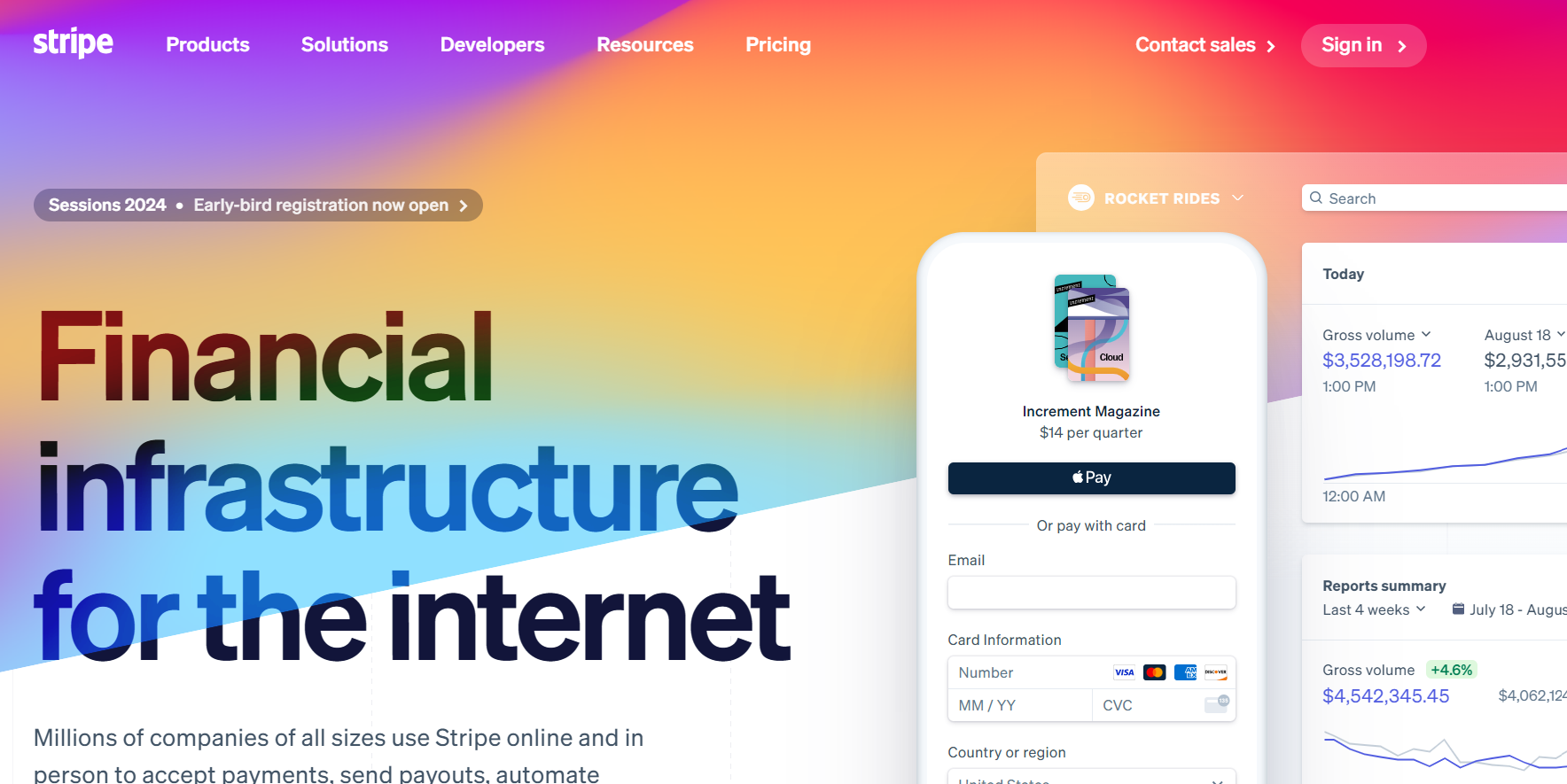Although Stripe is undoubtedly a popular business financial solution, certain limitations apply to how healthcare providers should use it to process healthcare-related payments.
As Stripe is not HIPAA compliant, choosing a HIPAA compliant online payment alternative can save your organization from potential compliance violations and other legal consequences.
Take into account these crucial details below before using Stripe for healthcare.
Table of Contents

Is Stripe HIPAA Compliant?
No, Stripe is not HIPAA compliant.
Whether it would be possible to enable Stripe HIPAA compliance, the most significant setback would be the payment platform’s inability to provide a Business Associate Agreement (BAA).
Like Zelle and PayPal, Stripe isn’t suitable for covered entities and business associates handling payment transactions involving protected health information (PHI) and other sensitive payment details. Although PCI-compliant, it does not meet the requirements set forth by the Health Insurance Portability and Accountability Act (HIPAA).
Using the digital payment processing solution to send and receive funds in exchange for a healthcare-related service violates HIPAA rules, which could result in serious legal consequences.
Even so, businesses in the healthcare industry could still use Stripe to process payments. However, providers must strictly limit its use to payment collection, and the transaction must not include other features like financial analysis and invoicing. This further complicates the process, so it would be best to consider other HIPAA compliant payment processing alternatives.

Why is Stripe HIPAA Compliance a must for healthcare payments
Due to the sensitive nature of protected health information, it is critical to ensure HIPAA compliance when handling healthcare payments. Failure to do so would not only put the patient’s privacy and safety at risk but also put healthcare providers in hot water for failing to comply with HIPAA rules.
Does Stripe Have a BAA? Stripe Business Associate Agreement
Stripe does not offer business associate agreements to HIPAA-covered entities, making it unsuitable for healthcare-related financial transactions. While the financial platform has imposed necessary security measures to safeguard payments, it does not meet the specific regulatory requirements outlined by HIPAA for handling PHI.
Benefits and Risks of Using Stripe in Healthcare
Benefits
- Detailed reporting: The payment processor offers comprehensive reports that empower providers to analyze and comprehend emerging patterns within their business operations.
- PCI compliance: Stripe adheres to the Payment Card Industry (PCI) standards, guaranteeing the utmost security of all payment card information.
- Scalability: Using the platform for sending and receiving payments makes it easy to scale and handle financial transactions in larger volumes without compromising efficiency.
Risks
- Not HIPAA compliant: Stripe does not adhere to HIPAA regulations, making it an inappropriate choice for handling payments that involve protected health information.
- Potential HIPAA violations: Payments made using a non-HIPAA-compliant payment processor could result in serious legal and monetary consequences. The United States Department of Health and Human Services may also impose penalties on covered entities and their business associates that fail to safeguard PHI per the regulations set by the HIPAA law.
- Limited suitability: Although Stripe may be beneficial and convenient for smaller independent practices, larger practices with existing payment systems may see no advantage in using Stripe.
The bottom line is that although the payment processor presents advantages like ease of use and PCI compliance, it still poses notable risks for healthcare providers due to its non-compliance with HIPAA regulations. It becomes crucial for providers to thoroughly consider the pros of utilizing Stripe in contrast to its potential risks. In doing so, providers can decide whether the convenience and ease of using Stripe outweigh the possible security and compliance risks.

HIPAA Compliant Online Payment Alternatives to Stripe
Below, you will see some of the alternatives for Stripe when it comes to handling online payments:
Authorize.net
A payment gateway that offers HIPAA-compliant payment processing for healthcare companies and clinical practices. It provides a stable platform for all major credit card processors and e-check payments.
Square
Square, renowned for its versatility in catering to the needs of retailers, is praised for its ability to seamlessly integrate online and offline operations as a Point of Sale (POS) application. This remarkable tool empowers businesses to process card and mobile payments effortlessly while being HIPAA compliant and providing the added benefits of real-time analytics and automated sales reporting.
HealthPay
HealthPay is a reliable and trustworthy payment solution that adheres strictly to the guidelines set forth by HIPAA. This solution presents a secure and compliant avenue through which clients of covered entities can effortlessly make payments. It offers a myriad of impressive features, including the convenience of storing credit card information, the ease of electronic funds transfer, as well as the flexibility of digital wallet options.
See: 5 Best HIPAA Compliant Payment Methods
These alternatives offer a safer route for your practice or business to accept payments that contain protected health information.
While Stripe has proven its reliability and security in processing online payments, it may not be the best option for handling sensitive healthcare data.







